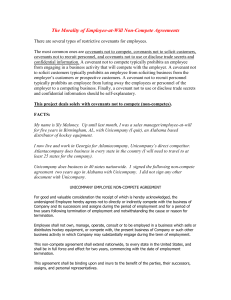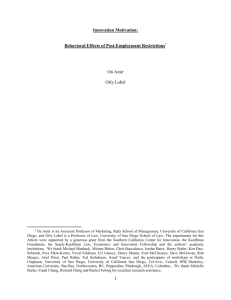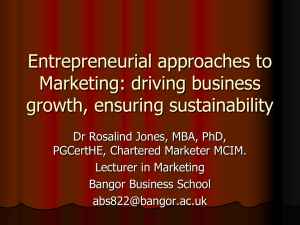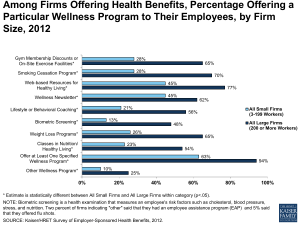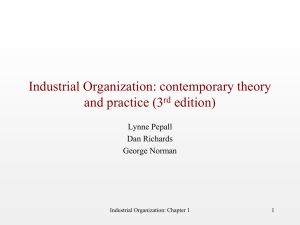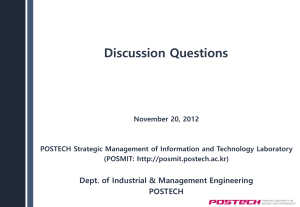649-1779-1-PB
advertisement
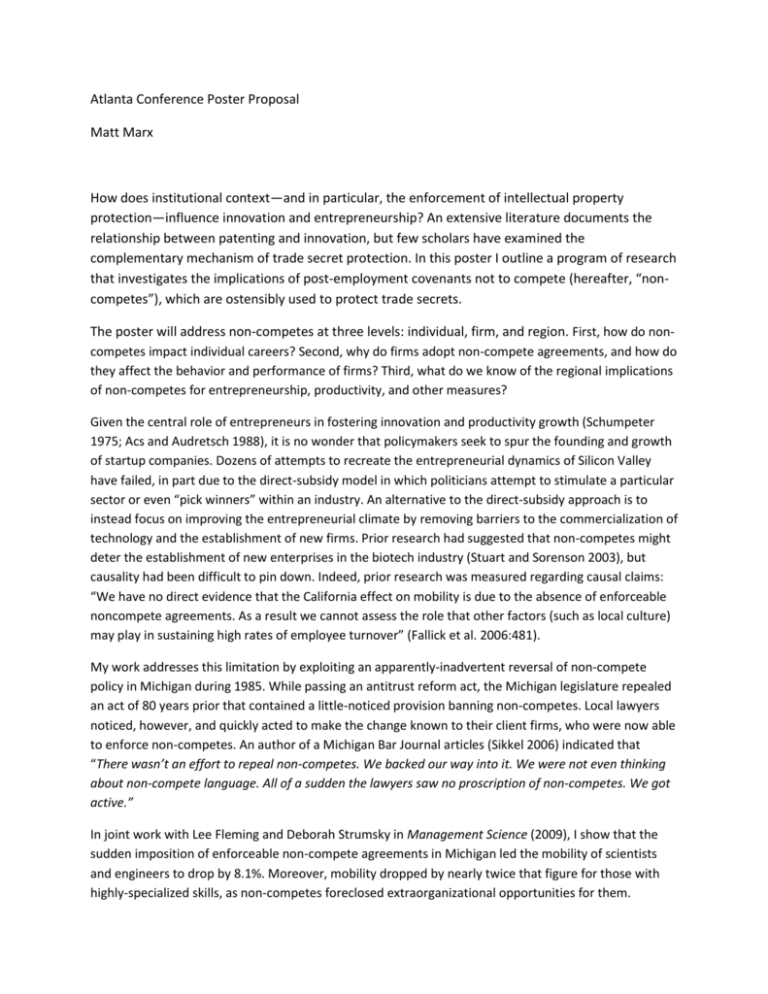
Atlanta Conference Poster Proposal Matt Marx How does institutional context—and in particular, the enforcement of intellectual property protection—influence innovation and entrepreneurship? An extensive literature documents the relationship between patenting and innovation, but few scholars have examined the complementary mechanism of trade secret protection. In this poster I outline a program of research that investigates the implications of post-employment covenants not to compete (hereafter, “noncompetes”), which are ostensibly used to protect trade secrets. The poster will address non-competes at three levels: individual, firm, and region. First, how do noncompetes impact individual careers? Second, why do firms adopt non-compete agreements, and how do they affect the behavior and performance of firms? Third, what do we know of the regional implications of non-competes for entrepreneurship, productivity, and other measures? Given the central role of entrepreneurs in fostering innovation and productivity growth (Schumpeter 1975; Acs and Audretsch 1988), it is no wonder that policymakers seek to spur the founding and growth of startup companies. Dozens of attempts to recreate the entrepreneurial dynamics of Silicon Valley have failed, in part due to the direct-subsidy model in which politicians attempt to stimulate a particular sector or even “pick winners” within an industry. An alternative to the direct-subsidy approach is to instead focus on improving the entrepreneurial climate by removing barriers to the commercialization of technology and the establishment of new firms. Prior research had suggested that non-competes might deter the establishment of new enterprises in the biotech industry (Stuart and Sorenson 2003), but causality had been difficult to pin down. Indeed, prior research was measured regarding causal claims: “We have no direct evidence that the California effect on mobility is due to the absence of enforceable noncompete agreements. As a result we cannot assess the role that other factors (such as local culture) may play in sustaining high rates of employee turnover” (Fallick et al. 2006:481). My work addresses this limitation by exploiting an apparently-inadvertent reversal of non-compete policy in Michigan during 1985. While passing an antitrust reform act, the Michigan legislature repealed an act of 80 years prior that contained a little-noticed provision banning non-competes. Local lawyers noticed, however, and quickly acted to make the change known to their client firms, who were now able to enforce non-competes. An author of a Michigan Bar Journal articles (Sikkel 2006) indicated that “There wasn’t an effort to repeal non-competes. We backed our way into it. We were not even thinking about non-compete language. All of a sudden the lawyers saw no proscription of non-competes. We got active.” In joint work with Lee Fleming and Deborah Strumsky in Management Science (2009), I show that the sudden imposition of enforceable non-compete agreements in Michigan led the mobility of scientists and engineers to drop by 8.1%. Moreover, mobility dropped by nearly twice that figure for those with highly-specialized skills, as non-competes foreclosed extraorganizational opportunities for them. These results are supplemented by fieldwork in a American Sociological Review article of mine (forthcoming). I find that those who nonetheless leave their jobs also leave their industry due to noncompetes, taking “career detours” and losing touch with their colleagues. In both cases, specialized talent is unavailable to entrepreneurial firms. In other working papers, I show that non-competes lead to a brain drain of talent from regions that enforce non-competes to those that do not, and that knowledge diffusion is substantially muted in regions that allow enforceable non-competes. In future work, I hope to access the employer-employee matched Census data to further explore the implications of non-compete enforcement. Rich data from the Census will enable me to ascertain whether there are wealth or gender effects in the enforcement of non-competes. Moreover, I will be able to ascertain the effect of non-competes beyond technical industries given the “universe” files available from the Census data covering all paid employment sectors.
